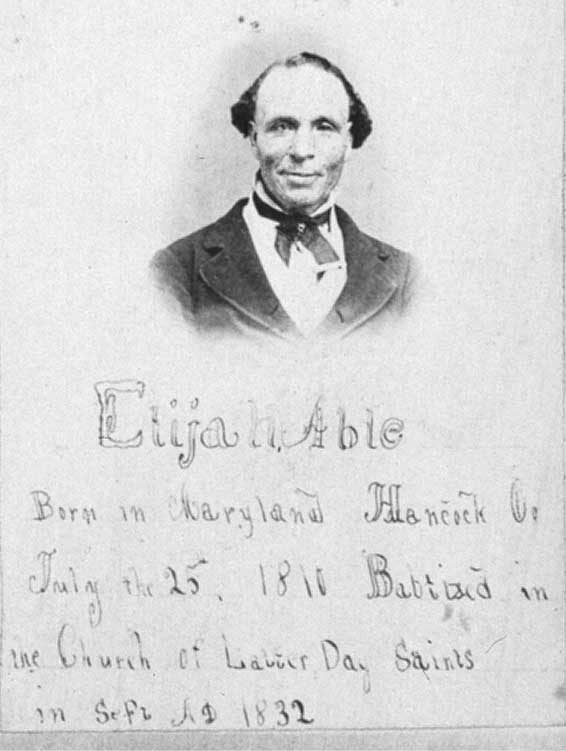Blog
Elijah Abel Find – Why This Matters
January 31, 2019
 For more articles like this, please visit the Fall 2018 Issue.
For more articles like this, please visit the Fall 2018 Issue.
Being a black Latter-day Saint and knowing that Elijah Abel was ordained to the priesthood reinforces my belief that God is no respecter of persons. This document has left even bigger doubts in my mind that the priesthood and temple ordinance ban was ever based on doctrine.
The additional knowledge about Abel’s ancestry is interesting. He obviously had African ancestry, but a lot of his ancestry was European. By American standards of that time, however, Able was black. People in the United States have always been acutely aware of the racial and ethnic background of their fellow Americans. Culture, social structure, and the law dictated that race mattered during that era. No one would have missed the fact that Abel was black. The priesthood and temple ordinance ban seems to have been retroactively applied to his situation. At the time of Abel’s ordination, his black ancestry did not seem to matter to anyone whose opinion was of any consequence.
By the early 20th century, it did matter (to people of consequence in the LDS Church) that Abel had black ancestry. Again, the new information from this document reinforces my belief that God is no respecter of persons. If Joseph F. Smith‘s memory regarding Abel’s priesthood changed over time, that doesn’t cause me to question whether or not Joseph F. Smith was a prophet of God. The 1904 statement, attributed to Smith, that calls Abel’s ordination a mistake that “was never corrected,” reinforces my belief that God will correct his people when they make mistakes. I believe, if the priesthood and temple ordinance ban was not based on doctrine, and it seems clear it wasn’t, then it was a mistake—a mistake that was eventually corrected in 1978.
Sometimes I get the sense that my fellow Latter-day Saints don’t believe that issues of race and ethnicity in the Church matter. They do matter. There are millions of Latter-day Saints who might (and often do) find themselves questioning their self-worth in the eyes of God based on false ideas dressed up as doctrine. That’s why this new information matters on so many levels. I’m grateful for the humility of Church leaders who have been willing to address and help correct myths and misconceptions regarding issues of race in the Church, with or without this kind of documentation that helps to clarify the past.
John Kwarm
Provo, Utah, U.S.A.


 Back to all blog articles
Back to all blog articles

